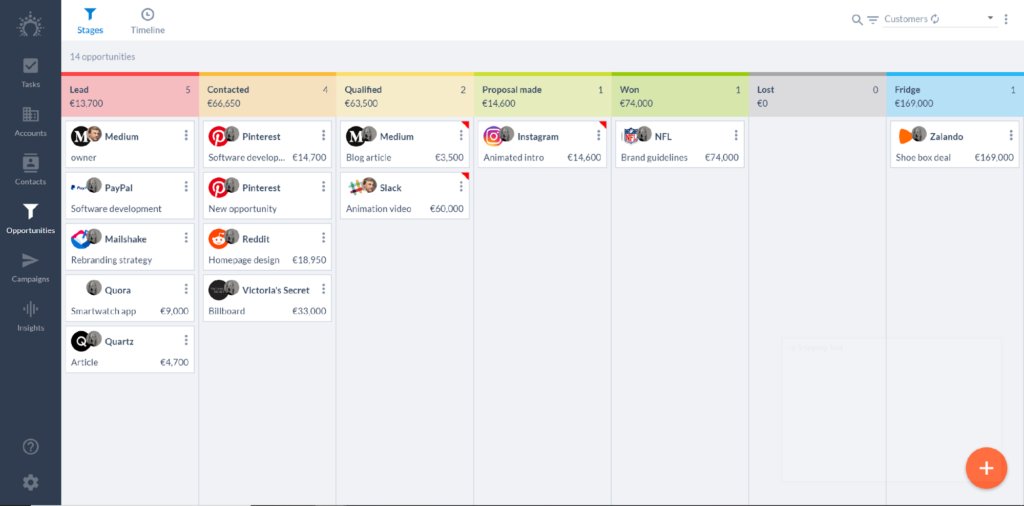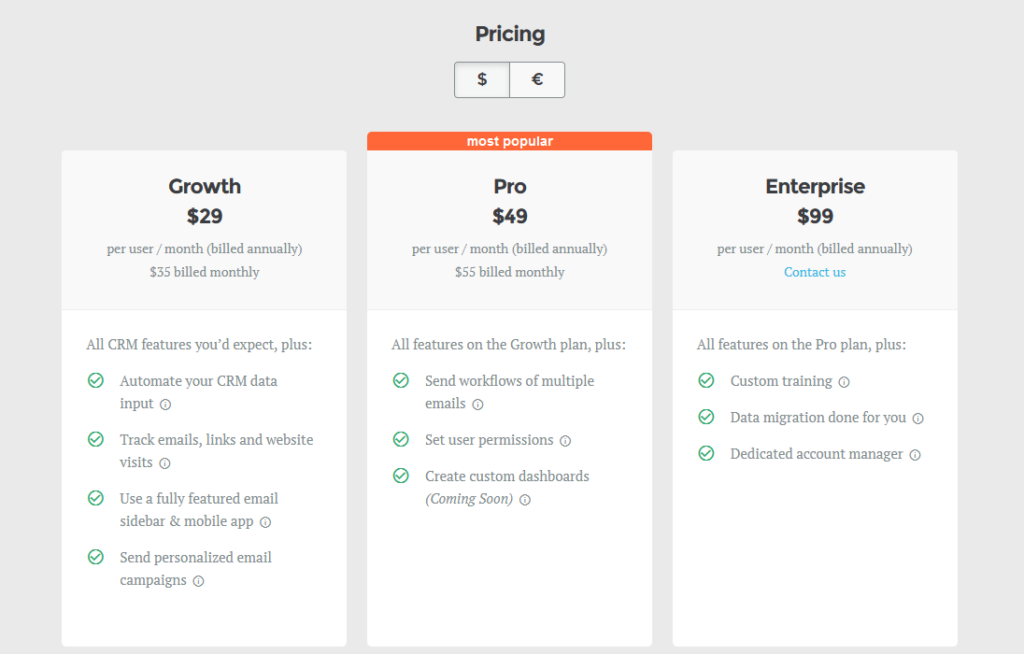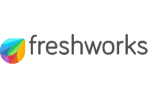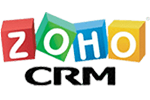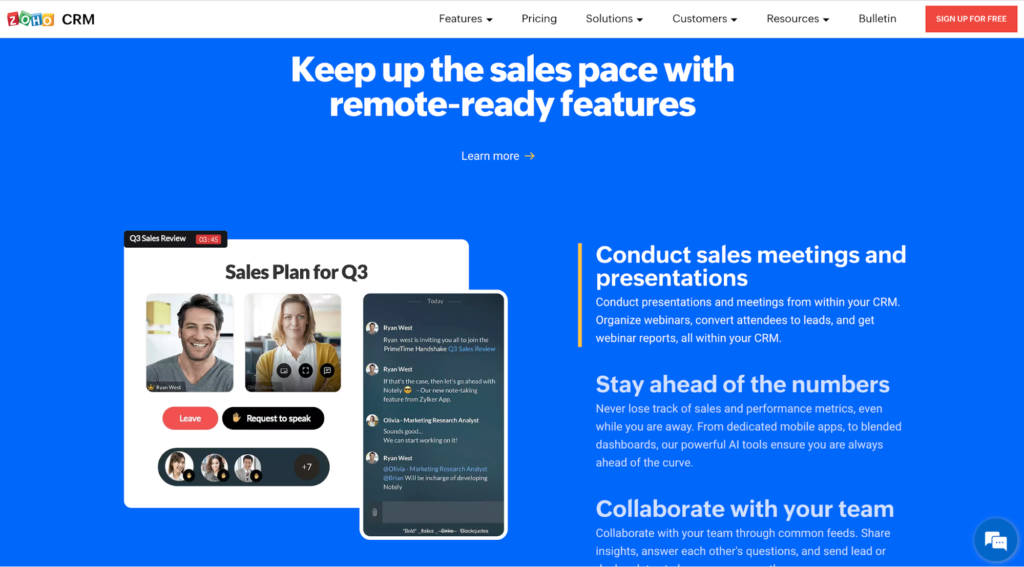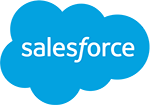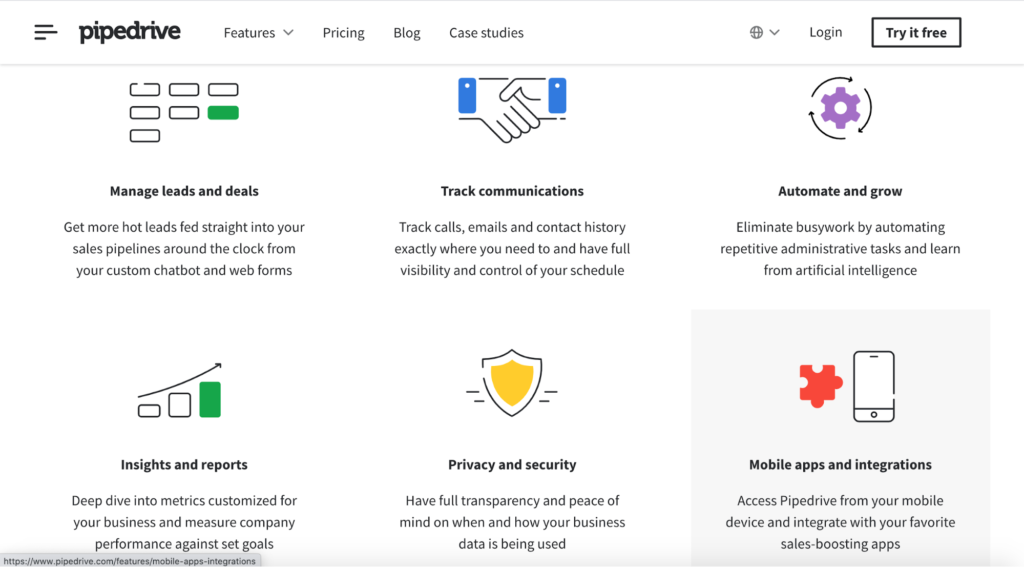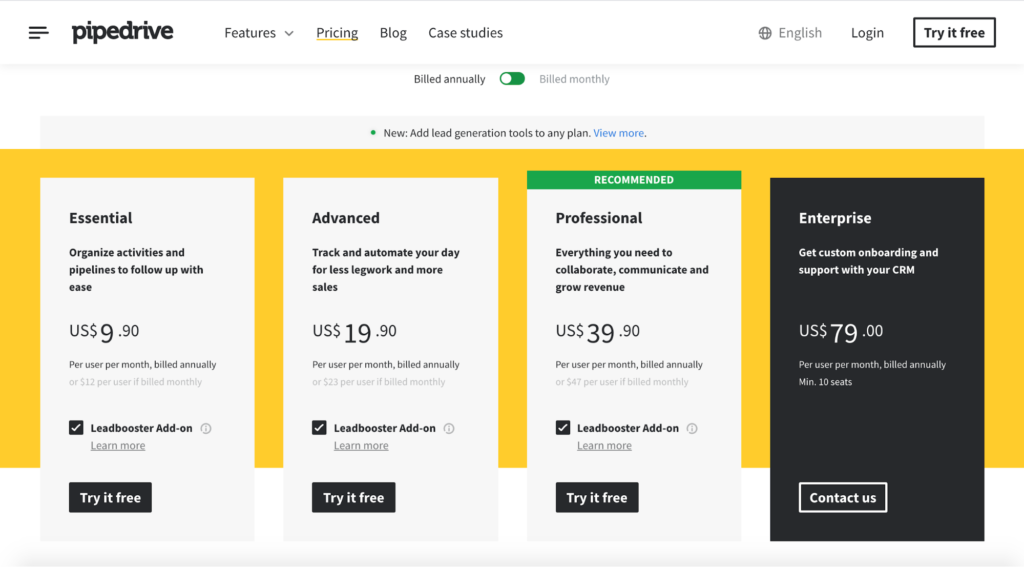If you want to grow your business, you have to stay in touch with and keep track of your customers.
You can use customer relationship management or CRM software to maintain and manage customers and potential customers in a way that keeps you free to focus on other aspects of your business.
Given the crucial role of a CRM in a company’s success, choosing the right software that offers all the necessary features and benefits becomes vital.
In this guide, we’ll explore the best small business CRM software to meet your small company’s needs efficiently.
The Top 6 Best Small Business CRM Software
- HubSpot CRM – Best for Cross-Platform Communication
- Salesflare CRM – Best for Supercharging Your Sales Funnel
- Freshworks CRM – Best for Lead Generation and Management
- Zoho CRM – Best Mobile-Friendly CRM
- Salesforce CRM – Best for Advanced Customization Options
- Pipedrive CRM – Best for Email Marketing
Let’s now discuss each software in more detail to help you find the perfect fit for your company.
#1 – HubSpot CRM – Best for Cross-Platform Communication
- Leading CRM platform
- Robust free-forever version
- Great for teams of any size
- Easy, powerful integrations
Any best small business CRM software list would be incomplete without HubSpot CRM.
It provides plenty of the tools small businesses and startups require to track and organize contacts and give them a complete overview of the sales pipeline. In fact, the platform was designed for small and complex sales teams.
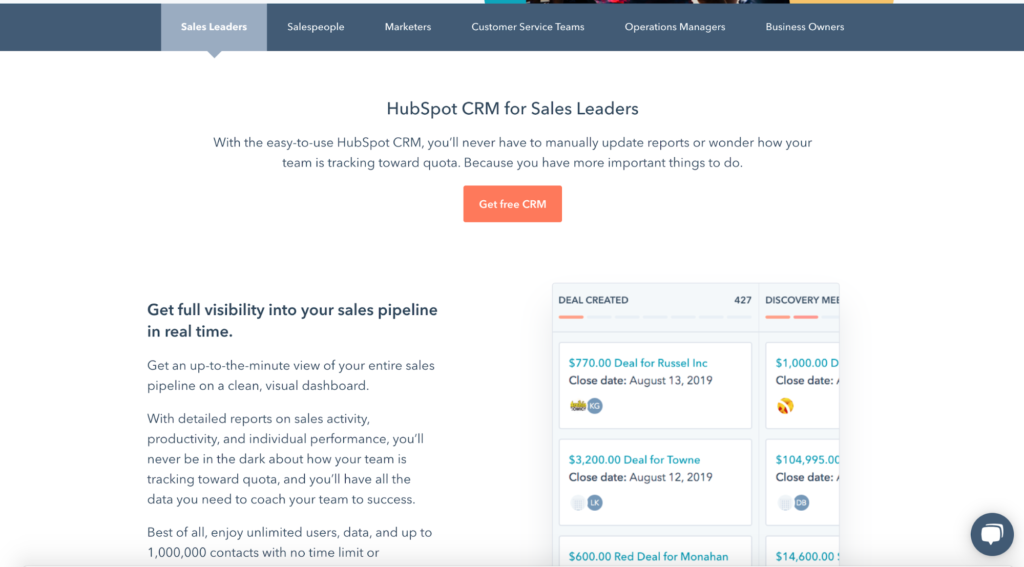
The CRM includes useful features like HubSpot Marketing synchronization, a drag-and-drop communicator, tracking and scheduling, deal and task board, company database, and email integration.
What makes this even better is these features are a part of HubSpot CRM’s free version. So you don’t have to spend a penny to take your business to the next level.
It comes with a full-fledged inbound marketing tool that helps you enhance your email marketing and content writing efforts. Plus, you can manage workflows to improve project management or find out if your clients have opened your emails.
HubSpot CRM makes it easier to communicate with customers in real-time. You can build strong relationships with prospects and customers through one-on-one conversations thanks to the included free tools for live chat, boards, and team email.
It also has a universal inbox where your sales, marketing, and customer service teams can manage and reply to all conversations regardless of your customers’ messaging channel.
Pricing
HubSpot CRM’s base plan is completely free. However, you can buy add-on packages and additional features, starting at $50 per user per month.
#2 – Salesflare CRM – Best for Supercharging Your Sales Funnel
- Solid info-gathering automation
- Build email workflows with ease
- No-fuss integration w/ Outlook & Gmail
- Starts at $29/user per month
In B2B sales, your work entails the constant cultivation and progression of opportunities. Salesflare is a streamlined CRM to help smaller B2B teams really maximize their ability to manage and convert leads through automation.
Just within the Accounts section of the software, you’ll see how it can help. This display shows all your accounts and prospects, with a column just for a detailed timeline of actions and interactions with each.
Here, you can see all the pertinent information for warming up, following up with, or handing off any lead or customer. You’ll also detail about the account itself, any opportunities associated with it, and any contacts intelligently suggested by the Salesflare software.
You can also head over to the Opportunities section to see a full timeline of how they’re progressing from leads to wins.
That last part is a big boon of using Salesflare. The CRM can automatically populate important details about individuals or companies you’re selling to by intelligently collecting it from social profiles, emails (including their email signatures), and other sources.
That alone streamlines your team’s work at the top of the funnel, but what about further along the buyer’s journey?
Remember those actions listed in the Accounts section I referred to just above? Well, that includes tracking lead, prospect, and customer activity like when they’ve opened an email, followed a link, visited a landing page, and much more. Plus, you can get push or desktop notifications in real-time, allowing you and your team to strike while the iron is hot with a well-thought follow up.
Salesflare helps in that regard, too. Personalized, scheduled, and trackable emails can be sent from any mailbox connected to the Salesflare CRM. With all the data that the software pulls in automatically, you’ll have no trouble properly segmenting your email audiences. That way, you can tailor your messages perfectly and really seal the deal with more prospects, leading to higher conversion rates.
At the two higher pricing tiers, you can also set up email workflows.
Pricing
Salesflare’s pricing is straightforward, though there is no free forever version like with some other products in this list.
- Growth – $29 per user per month
- Pro – $49 per user per month
- Enterprise – $99 per user per month
But you can still take advantage of a free trial for up to 30 days to try Salesflare on for size. It’s a simple, but powerful tool truly made for smaller but ambitious B2B sales teams.
#3 – Freshworks CRM – Best for Lead Generation and Management
- User-friendly interface
- Built for lead cultivation
- Set up multiple pipelines
- Unlimited contacts
Previously known as Freshsales, Freshworks CRM is a very robust software for small businesses that offers lots of customization and information storage options.
It’s incredibly user-friendly and has a sales-oriented approach complete with all the features you need to maximize conversions.
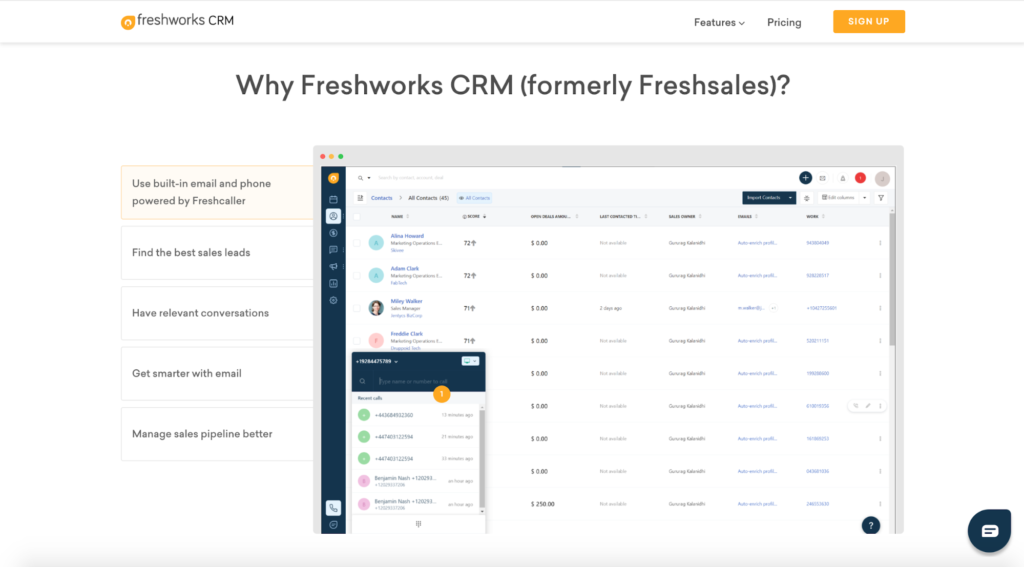
You can use the tools for reliable lead capture and monitor all your potential customers effectively. Moreover, the software comes fitted with an AI-based lead scoring system that helps you make smarter choices and pursue leads that are most likely to convert.
Freshworks’ dashboard gives you instant access to contact management, reports, emails, phone calls, and more to streamline the various aspects of the sales process. It helps you improve your sales, gain crucial business insights, and prioritize pipeline opportunities.
If you have a diverse product mix, you’ll be happy to know you can have up to 10 separate pipelines. Although the number of integrations is limited, the software offers native integration with some of the most popular third-party apps and services.
Pricing
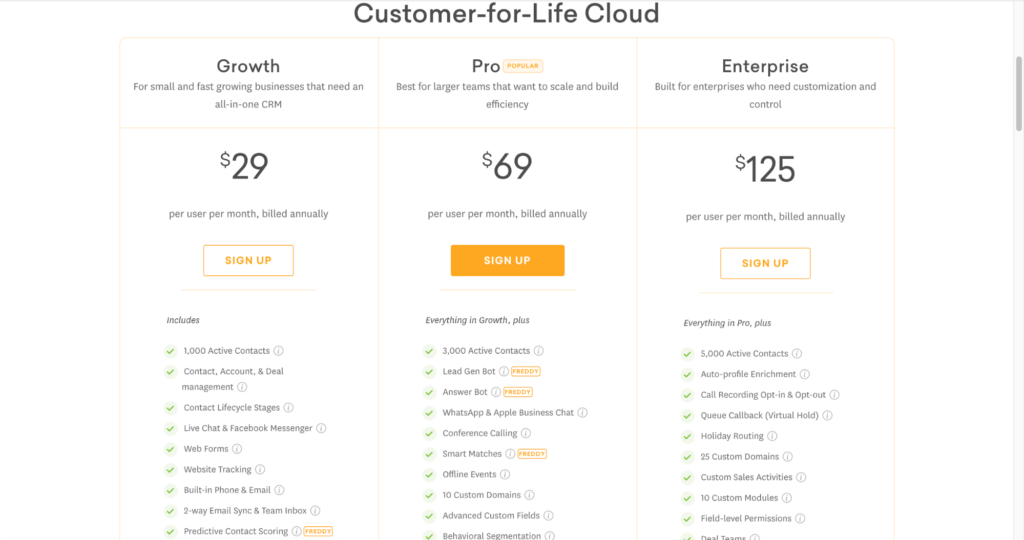
There are four paid plans ranging from $29 per user per month to $125. Each plan allows for unlimited contacts.
#4 – Zoho CRM – Best Mobile-Friendly CRM
- Great automation features
- Best mobile apps for a CRM
- Free tier + low-cost plans
- Customizable for your needs
Zoho CRM has an easy-to-use interface, customizable modules, automation, and social media features perfect for small businesses. You get a powerful set of marketing and sales features with online productivity tools and SaaS apps.
As a small business, your manpower is limited, which is why Zoho’s sales and workflow automation functions are such a hit. For instance, you can use its automation features to cover lead generation and contacts, accounts, and deals management without extra help.
This software eliminates repetitive and tedious manual tasks, allowing your team to focus on developing long-term relationships with customers. Also, it improves the accuracy of other critical processes like reinforcing efficient leads, contacts, generating leads, and deal management.
Zoho CRM comes with highly-rated mobile applications for iOS and Android devices. It protects all your data through encryption, two-factor authentication, IP restrictions, and audit logs to ensure your data remains uncompromised. These features make it ideal for small businesses with customers who primarily use mobile devices to interact with you.
You can also integrate the platform with other marketing tools you’re already using to capture leads through social media, offer customer support using built-in life chat, and segment visitors.
Pricing
Zoho CRM offers five plans (billed annually):
- Free — Forever free up to three Users.
- Standard Edition — $12 per user per month
- Professional Edition — $20 per user per month
- Enterprise Edition — $35 per user per month
- Ultimate Edition — $45 per user per month
#5 – Salesforce CRM – Best for Advanced Customization Options
- Industry-leading CRM
- Incredibly customizable
- Deep insights and reporting
- Boost sales team productivity
Salesforce is hands-down one of the most widely used CRMs on the market.
It’s a powerhouse that provides extensive sales and marketing solutions to highlight top leads and identify wins and losses concerning customer transactions. You also get separate systems for cloud-based analytics, service, community, and marketing.
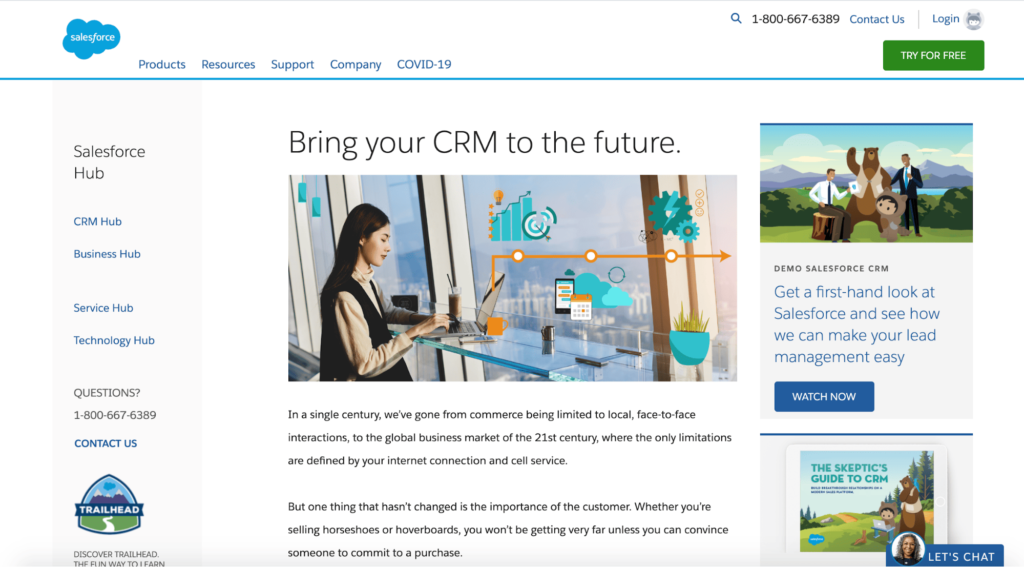
Salesforce can help maximize your revenue with its advanced feature offering.
It is flexible and fully customizable, which, with its intuitive interface, helps clear the sales funnel faster. It covers every stage of the customer lifecycle. And the pricing is reasonable for smaller businesses.
It has a unique AppExchange feature that can boost your sales team’s overall productivity. You can use it to create reports, forecast sales, and complete territory models.
The opportunity management feature gives you insights and opportunities, while contact management allows you access to your customers’ activity history, discussions, communications, and social mentions. The sales collaboration module helps you keep track of and verify sales information.
Recently, Salesforce acquired cloud-based software called Evergage that enables users to collect, analyze, and respond to user behavior on their websites and web applications in real-time. This has given Salesforce direct access to Evergage’s advanced artificial intelligence technology. So we can expect users to benefit from the advanced predictive features soon.
Pricing
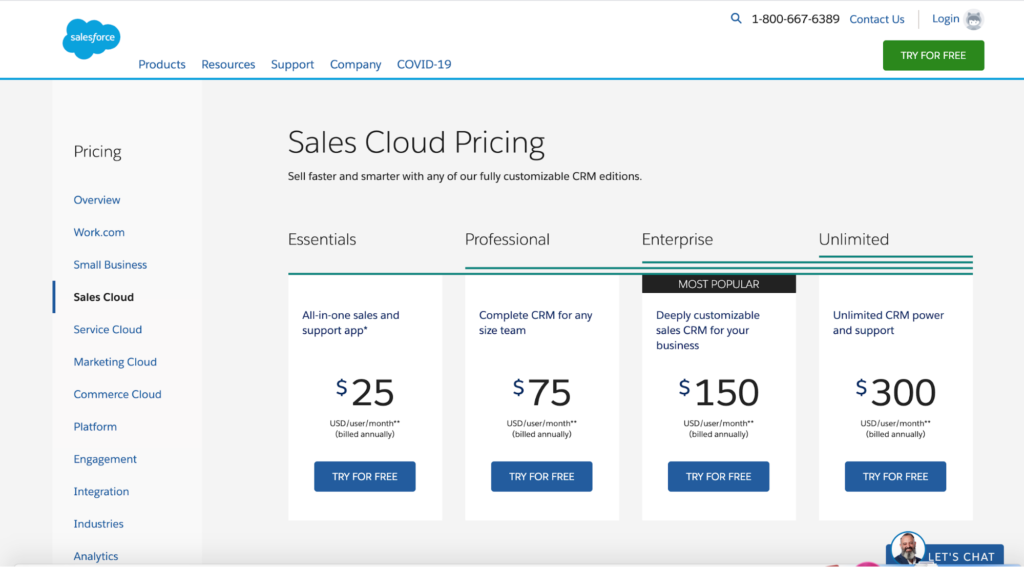
Salesforce CRM offers four fully customizable plans:
- Essentials — $25 per user per month
- Professional — $75 per user per month
- Enterprise — $150 per user per month
- Unlimited — $300 per user per month
#6 – Pipedrive CRM – Best for Email Marketing
- Easy-to-learn visual UX
- Great for inbound marketing
- 150+ integrations and open API
- Boost sales-marketing alignment
Pipedrive’s cloud-based CRM for small businesses drives the sales process and keeps track of contacts. It provides solutions for generating leads and managing pipelines and contacts to keep you on top of deals.
The platform has a highly visual and straightforward user interface designed to help you move the customer down the sales pipeline and finalize deals.
You can sync Pipedrive with your email service provider, such as Outlook, Gmail, and so on, and then sync emails as far back as six months. The emails will be linked to the respective people, organizations, and deals once the sync is completed.
Sharing contacts with other team members is incredibly easy, too. You can use the software‘s email features like cold email templates and group email (up to 100 contacts) to save time.
Pipeline’s app marketplace has over 150 third-party tools you can integrate for extra capabilities. Developers can utilize the system’s open API to build custom features and integrate with other software.
Pricing
Pipedrive CRM offers four pricing tiers:
- Essential – $9.90 per user per month
- Advanced – $19.90 per user per month
- Professional – $39.90 per user per month
- Enterprise – $79 per user per month
How to Find the Best Small Business CRM Software for You
The only way to find the best small business CRM software to invest in is to know what to look for. It’s obvious to want software that’s easy to use and fits your budget, so we’ll focus on other criteria.
Here are a few other factors to consider when researching the right CRM for your small business.
Cloud-Based Solutions
With the ongoing pandemic and many workforces being remote, having a cloud-based CRM is vital for any small business. This way, you and your team will be able to access client details and other crucial data from anywhere and at any time.
Cloud-based software is faster, more secure, and offers seamless integration with other applications. All of this will ensure your business keeps thriving.
It would be even better if you can get a mobile-friendly CRM to boost your team’s productivity levels. In fact, Nucleus Research found that 65% of companies exceeded their sales targets after adopting mobile-friendly CRMs.
Customization & Automation
You like doing things your own way. Try to look for CRM software you can tailor according to your specific needs.
You should prioritize customization features that allow you to modify contact and opportunity fields, among other things, to streamline your operations. Flexibility and personalization are key to utilizing a CRM and using it to the best degree possible.
Workflow and follow-up task automation are useful features that make some tedious tasks less time-consuming for you. A CRM with automation features will make your entire company more productive. Being able to customize those automations is equally as important.
Integrations & Compatibility
Think about the features you need in your CRM software to be productive. You have to understand your CRM is NOT just a contact list. It should integrate lead generation with marketing and sales, too.
Find software that can store names, email addresses, phone numbers, and even social media links. Some CRMs also scan through social media profiles to analyze whether a specific contact fits your ideal customer profile.
For example, interaction tracking will help you quickly manage relationships by understanding the contact history of a person with your business. On the other hand, deal management creates pipelines to track outreach, deals, and negotiations.
A good CRM should facilitate and work seamlessly with all other systems you already use. It’s the only way you can stay at the very top of your customer journey. For instance, if you use an email marketing service, lead generation software, WordPress, and a social media tool, your CRM software must support these integrations for a seamless customer experience and internal process.
Vendor Customer Support
As a small business, you probably don’t have a dedicated IT department at your beck and call. That’s why you should ensure your prospective CRM software comes backed by efficient customer support.
It would be ideal to can get round-the-clock service to help ease the software’s learning curve, resolve technical problems, or answer questions if you get stuck.
Summary
Running a business is hard, but using the right tools will make it easier. Small businesses especially require such tools for better results with fewer people.
CRMs allow you to work smarter. You can register your online presence, create engaging content, and most importantly, establish a strong one-on-one dialogue with your customers–all from a single tool.
Check out our best small business CRM picks, and then make a choice based on your specific needs. Remember to stay consistent and operate with an open mind. After all, successful businesses weren’t built overnight.
from Quick Sprout https://ift.tt/2LyoPVe
via IFTTT


